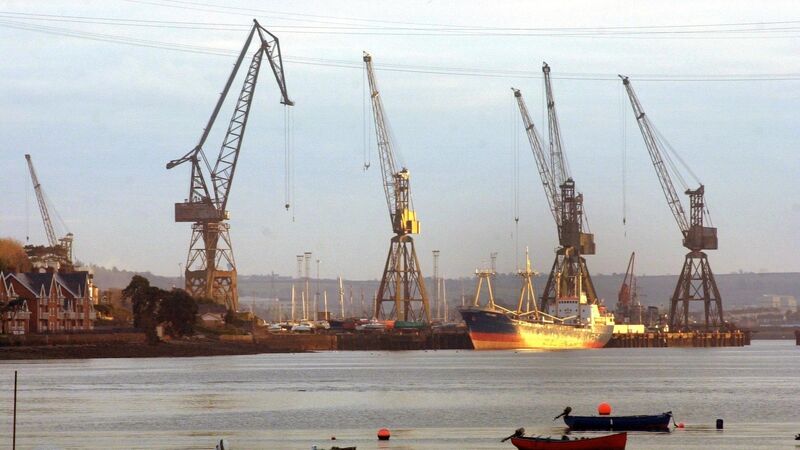State papers: Government blocked building of submarines in Cork for fear of provoking China

Permission had been sought by Dutch business interests to construct submarines at the Cork Dockyard in Rushbrooke, Co. Cork, which was previously the location of the Dutch-owned Verolme Cork Dockyard which closed in 1984. File picture
Plans to build submarines in a Cork shipyard in the early 1990s were scuppered by the Government over concerns that the proposed export of the vessels to Taiwan would upset Ireland’s relations with China.
Newly-released State papers show the Government also opposed the project as it did not want Ireland to become a significant producer or exporter of military equipment.















